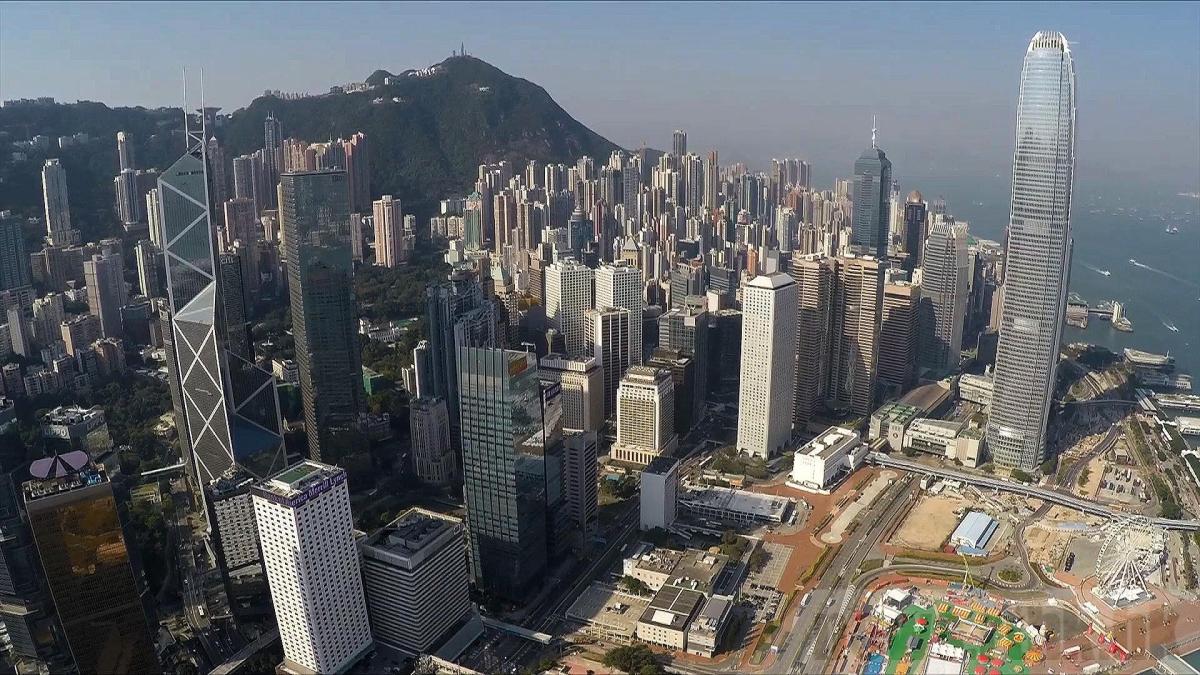US President Donald Trump has warned that Hong Kong might lose its status as a global financial centre if the city’s freedoms and vaunted judicial independence are swept aside.
Trump is “displeased” with China’s proposed crackdown in Hong Kong and has doubts over the territory’s future as a global financial centre if it goes ahead, the White House warned on Tuesday.
It’s “hard to see how Hong Kong can remain a financial hub if China takes over,” press secretary Kayleigh McEnany told a briefing, saying the warning came directly from Trump.
Beijing wants to enact legislation banning secession, subversion, terrorism and foreign interference in Hong Kong after months of massive, often violent pro-democracy protests last year.
Activists in Hong Kong warn the clampdown would effectively mean an end to the former British colony’s special status, where elections, a free press and other liberties help make it an international finance capital rivalling New York and London.
Under a “One country, two systems” model agreed before the city’s return by Britain to China, Hong Kong is supposed to be guaranteed certain liberties until 2047 that are denied to those on the mainland. The deal fuelled the city’s rise as a world class financial hub and gave Chinese companies a crucial channel to borrow money.
But in recent years political unrest has swept through the city, something Beijing’s communist rulers are determined to end.
The legislature was blockaded and later trashed by demonstrators early on during last year’s protests as authorities tried to fast-track an eventually scrapped bill allowing extraditions to the authoritarian mainland.
Some analysts have said there appears to be bipartisan support among US politicians for sanctions against Beijing if it goes ahead with the national security law, as expected.
Gas masks and Molotov cocktails
Meanwhile, riot police ringed the city’s legislature on Wednesday to stifle protests ahead of a debate over a law that bans insulting China’s national anthem, the latest measure activists say is eroding freedoms in the finance hub.
Some unions and student groups had called for a general strike on Wednesday but the police dragnet appeared to succeed in deterring any large protests beyond some brief chants by small flash-mobs.
Police said officers uncovered some Molotov cocktails as well as other “illegal” items such as gas masks, hammers and pliers.
Anthem booed
Hong Kong’s government is pushing a bill that will criminalise insulting communist China’s “March of the Volunteers” anthem, making it punishable by up to three years in jail.
“As Hong Kongers, we have a moral responsibility to respect the national anthem,” Matthew Cheung, Hong Kong’s de facto deputy leader, told reporters ahead of the debate.
Addressing concerns that the law would damage free speech, Cheung used a Chinese idiom often translated to someone “making a mountain out of a molehill”.
Beijing has been infuriated by Hong Kongers – especially football fans – booing the national anthem to signal dissatisfaction with China.
The city’s pro-democracy opposition say the bill is a fresh attempt to criminalise dissent.
Fights have broken out between rival lawmakers over the legislation.
Pro-democracy politicians are prevented from holding a majority in the legislature, only some of whose members are elected by popular vote.
But for months they used filibustering within a legislative committee to stop the bill reaching the floor for a vote.
The city’s pro-Beijing faction seized control of the committee earlier this month – a move opponents said was unconstitutional.
Wednesday’s session is the bill’s second reading. A third reading is likely to come next week after which it will become law if approved.
Security law
Beijing portrays Hong Kong’s democracy protests as a foreign-backed plot to destabilise the motherland.
Activists say their rallies, which have been attended by millions, are the only way to voice opposition in a city without fully free elections.
Last week Beijing announced plans to enact legislation banning secession, subversion, terrorism and foreign interference. That law, which has yet to be published in full, will bypass the legislature and be drawn up directly by Beijing.
One measure announced includes plans to allow China’s security agencies and secret police to openly set up shop in Hong Kong for the first time.
The move has alarmed investors and some western governments with the stock market suffering its biggest drop in five years last week.
Hong Kong’s unpopular pro-Beijing leader Carrie Lam has said the law will not stifle freedoms although she has yet to see the full details of what Beijing is proposing.
AFP






















